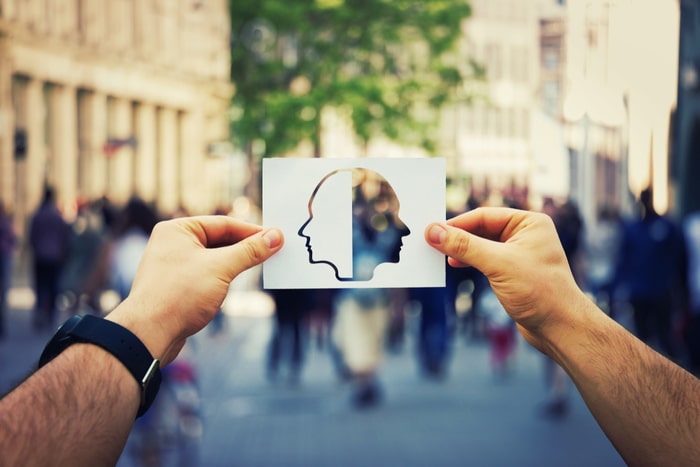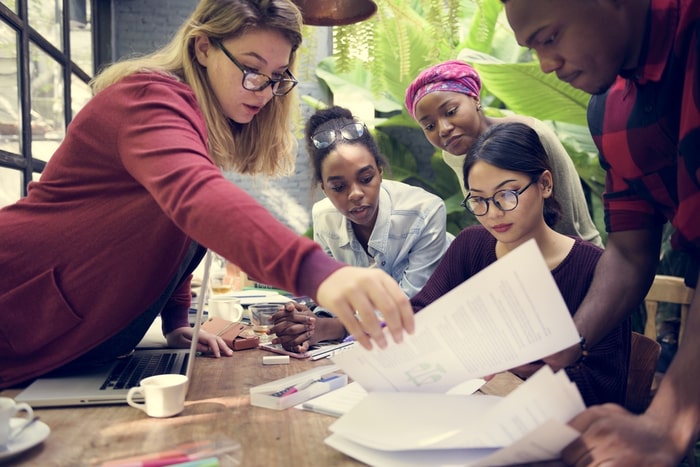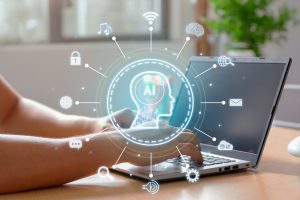As the UK begins to emerge from lockdown, Saffron asks if the global crisis is enough to make us change our ways when it comes to the environment. What is it that drives our behaviours and makes us creatures of habit – even to our own destruction? And finally: how do these findings give us insight on how behaviour change can be addressed in developing learning solutions?
Our lives have been altered in ways we couldn’t have imagined. The global Coronavirus crisis has changed the course of human behaviour abruptly, and nobody is sure when things will return to normal – or what normal might become. That’s not news to you. But have you considered the impact that Coronavirus is having on the world around us?
Despite the pleasing symbolism of trees acting like lungs, plants can’t get the coronavirus. And neither can geological features, or most animals. Yet all these things are being dramatically affected – indirectly. Why is that? Because of how we, as humans, have changed our behaviour. Much of the world’s economy is based on trade, travel, and consumption.
Now that our recreational and economic activities have paused, environmental damage has dropped rapidly. An unexpected blessing from the trauma of lockdown. It begs the question, is it possible to continue this positive trend? Or will we return to our old ways without even a blink? And how can you evaluate whether a behaviour has actually changed, as opposed to being temporarily altered?
The difference lockdown has made
The true effects of lockdown are hard to measure right now, given that they’ve only been in effect for a few months. That seems like a long time when you’re stuck inside, but it’s relatively brief from an ecological or behavioural perspective. However, there are already strong signs that the change in our behaviour is making an impact. China saw the first changes, with CO2 levels dropping up to 25% in February. After accounting for other major economies in India, Europe, and America analysis suggests ‘the pandemic could cause emissions cuts this year in the region of 2,000m tonnes of CO2’.
The effect of this reduction in emissions is a slowing down of global warming. CO2 creates a rise in global temperatures that will become disastrously irreversible after a certain point. So far, it’s been estimated that the impact of our Corona-driven behaviour change will cut emissions by 5.5% (of 2019’s total). However, scientists say we need a 7.5% reduction year on year to remain within the safe margin.
What have been the behaviour changes behind the current drop? Foremost is a reduction in travel. Moreover, by closing places of work as well as restaurants and bars, demand for electricity has gone down. People are staying in and cooking rather than dining out, they’re meeting friends virtually, they’re sticking to their local areas. And most importantly, large corporations are having to pause their large-scale operations. These are the major drivers of pollution.

How to make change stick
At Saffron, we’re not new to behaviour change. In fact, it’s part of our core mission; we create positive transformations in organisations and people. So, while we can’t quite step in and solve the problem of climate change, we can share some approaches worth considering.
Our Senior Instructional Designer and Project Lead Isabella wrote about the five steps to achieving the behaviour change necessary for technical compliance. She was referring to issues like GDPR, but her five key points are universally valid. More recently Sales Executive Georgina went into detail on how digital banks are disrupting well established consumer behaviours. Both articles showcase different approaches in creating behavioural changes that go against the grain of one habit in exchange for another.
How it really happened
To make themselves safe, the general public has responded surprisingly fast with deep behavioural changes. Over 85% have reported to have adapted to the new behaviours prescribed by the Government. It’s worth noting that only 37% felt that others around them in public had made behaviour changes. This may be an important factor in making changes permanent.
But we can be fickle creatures. We don’t always act in our best interests – unfortunately, our brains are not wired up to act based on long term rewards. This is why we have so far failed to combat climate change, and why we find it hard to stick to resolutions. There’s a myriad of potential reasons for this. Some researchers think it’s to do with our brains evolving to evaluate patterns based on past experience. Others attribute it to a behavioural economy model called hyperbolic discounting. This is the phenomenon that would drive you to take £50 upfront rather than £100 in a months time.
However, there is evidence that we can adopt behavioural change. This can be seen in the long term adoption of hygienic measures after past influenza outbreaks, or support for energy saving measures after global warming induced flooding.
But these changes were in direct response to an antagonizing issue. It’s a much bigger ask to expect people to maintain a behaviour change driven by one issue (Coronavirus) to solve another (climate change). Moreover, ‘research shows that positive change generally dwindles over time’. The way to make these changes stick is subject to debate. Some say that a collectivist approach based on a shared sense of purpose is essential to entrenched behaviour change. Others posit that a strong, authority led response is most vital.

Learning Behaviours
The behaviour acquisition discussed so far clearly shows mixed results. Applying blunt pressure to the complex nature of human cognition tends to show this sort of outcome. Given that behaviour change is our remit at Saffron, we’ve spent two decades developing a range of subtle and complex methods to achieve lasting behavior transformation.
From the richly featured platform created for AVA to train users to spot abuse and react appropriately to the award winning Bribery Act Challenge course featuring immersive gamification, the solutions we’ve created have been able to create lasting change, without having to rely on carrot and stick methods. Techniques such as narrative immersion and storytelling, psychological constructs including colour modelling and the fun theory are some of the simpler ways to create compelling engagement. We’ve lectured on the interplay of graphics and nudge theory in creating behaviour change, and critically evaluated techniques such as micro-learning. This doesn’t even scratch the surface, but it should give you an idea of how constant research and development into cognitive and psychological theory is vital to reliably sustain changed behaviour.

Conclusion
Ultimately, it’s going to take a monumental effort to transform social and economic behaviour enough to combat climate change and safeguard the environment. It will take effort from the individual, government, and private organisations. Hopefully, this crisis will be the shock needed to show just how easily our delicate society can unravel. It’s been said that the Coronavirus is the tip of the iceberg compared to the looming ecological disaster. However, if we’re able to prioritise behaviour change in our private and working lives, there might be a glimmer of hope.
In the next part of this series on behaviour change, we’ll be looking at just how everyone is going to act when returning to work. What changes are planned, what are needed, and how long will they be needed for. And most importantly – how to make them happen.
Want to go deeper about changing behaviour to improve performance? Get in touch and we might be able to help.




